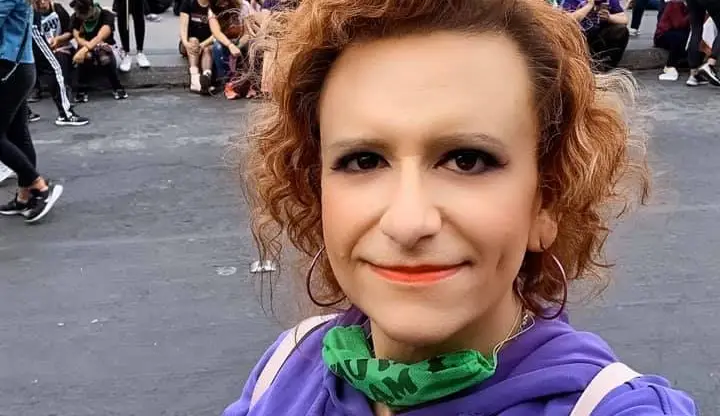Body of trans doctor María Elizabeth Montaño found dumped by a motorway in Mexico

Trans doctor María Elizabeth Montaño was found dead on Friday, June 19. (María Elizabeth Montaño/ Facebook)
The body of doctor and trans woman María Elizabeth Montaño has been found by authorities in Mexico dumped by the side of a motorway.
According to Reuters, authorities said Montaño, 47, worked at the Mexican Social Security Institute but had been missing for almost 10 days when her body was found near the town of Tres Marias, around 50 kilometers outside Mexico City.
The mayor of Mexico City, Claudia Sheinbaum, wrote on Twitter: “We are so sorry that Doctor Elizabeth has been found dead.
“We are in contact with her family to whom we send our solidarity.
“We expect a prompt result of the investigations from prosecutors.”
Lamentamos el hallazgo sin vida de la Doctora Elizabeth. Estamos en contacto con su familia a quien enviamos nuestra solidaridad. Esperamos de las Fiscalías el pronto resultado de las investigaciones. https://t.co/MdNBMdc3ny
— Claudia Sheinbaum (@Claudiashein) June 19, 2020
Montaño was a trans rights advocate in Mexico’s health sector, and even trained other doctors in trans healthcare.
Activist Siobhan McManus told Reuters: “It’s a huge loss because still in this country many doctors see trans identities as a disease, a disorder.
“Elizabeth was a transformational force within medical communities and was a very important voice.”
The death of the trans doctor has reignited fears for the safety of the trans community in Mexico.
Half of Mexico’s states now allow marriage equality and courts have also ruled in favour of cornerstones for trans rights, such as the legal right to change gender identity on official documents.
But despite these recent strides towards LGBT+ equality, violence against queer people, particularly trans women, is on the rise.
At least 117 LGBT+ people were brutally murdered in Mexico last year, in what activists called the deadliest year on record in half a decade.
The figure was up almost a third (27 percent) compared to 2018, and more than half of the LGBT+ victims were trans women, according to a report by Letra Esse.
The group warned, however, that the real figure might be even higher.
Alex Orue, It Gets Better Mexico, said Montaño’s death “is a powerful reminder … of the violent situation that LGBT+ communities live in, and particularly trans populations.”
He added: “It’s cruel on so many levels.”

